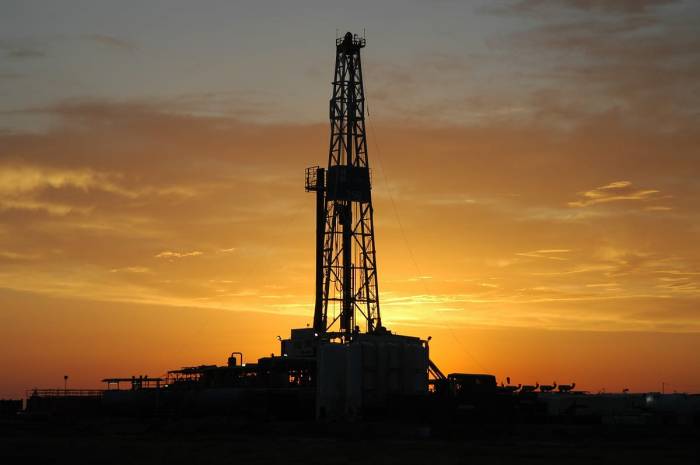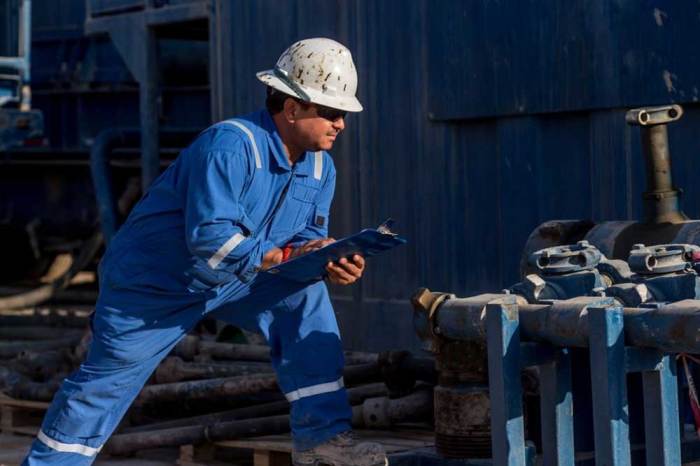Understanding Oil Rig Accidents
Oil rig accident attorney – Oil rig accidents are catastrophic events, often resulting in severe injuries and fatalities. These incidents are complex, involving a confluence of factors that contribute to their occurrence. Understanding the common causes, injury types, and legal complexities is crucial for both prevention and effective legal recourse.
Common Causes of Oil Rig Accidents
Several factors contribute to oil rig accidents. These range from equipment malfunctions and human error to inadequate safety protocols and environmental hazards. Examples include explosions, fires, falls from heights, equipment failures, and exposure to hazardous materials. The inherent risks associated with offshore operations amplify the potential for severe consequences.
Types of Injuries Sustained in Oil Rig Accidents
Injuries sustained in oil rig accidents can range from minor to catastrophic. Common injuries include burns, fractures, traumatic brain injuries (TBIs), spinal cord injuries, amputations, and fatalities. The severity of injuries often depends on the nature of the accident and the proximity of the individual to the event.
Legal Complexities Surrounding Offshore Accidents
Offshore accidents present unique legal challenges. Jurisdictional issues, maritime law, and the complexities of proving negligence in a harsh and remote environment all contribute to the difficulty of these cases. Specialized knowledge of maritime law and offshore safety regulations is essential for navigating these complexities.
Examples of Negligence Leading to Oil Rig Accidents
Negligence can manifest in various ways, including inadequate safety training, failure to maintain equipment, insufficient safety protocols, and a lack of proper emergency response plans. For example, a failure to properly inspect a crucial piece of equipment leading to a catastrophic failure is a clear example of negligence. Similarly, inadequate training of personnel on emergency procedures can exacerbate the consequences of an accident.
Comparison of Oil Rig Accident Types and Causes
| Accident Type | Typical Causes | Injury Types | Legal Considerations |
|---|---|---|---|
| Explosion | Gas leaks, faulty equipment, improper handling of explosives | Burns, respiratory injuries, traumatic injuries | Product liability, negligence, breach of contract |
| Fire | Electrical faults, flammable materials, equipment malfunction | Burns, smoke inhalation, traumatic injuries | Negligence, inadequate safety measures, failure to maintain equipment |
| Falls | Lack of safety railings, inadequate lighting, slippery surfaces | Fractures, head injuries, spinal cord injuries | Negligence, failure to provide safe working conditions |
| Equipment Failure | Lack of maintenance, faulty design, improper operation | Crushing injuries, lacerations, amputations | Product liability, negligence, failure to provide safe equipment |
The Role of an Oil Rig Accident Attorney
Navigating the legal complexities of an oil rig accident requires the expertise of a specialized attorney. These attorneys possess a deep understanding of maritime law, offshore safety regulations, and the specific challenges associated with these types of cases. Their role is crucial in securing fair compensation for victims and their families.
Services Provided by an Oil Rig Accident Attorney
Oil rig accident attorneys provide a wide range of services, including investigating the accident, gathering evidence, negotiating with insurance companies, filing lawsuits, and representing clients in court. They also handle the complex process of assessing damages and ensuring that victims receive the compensation they deserve.
Process of Filing a Lawsuit After an Oil Rig Accident
Filing a lawsuit after an oil rig accident involves several steps, beginning with a thorough investigation to determine liability and gather evidence. This is followed by filing a complaint, conducting discovery, and potentially going to trial. The process can be lengthy and complex, requiring the expertise of an experienced attorney.
Legal Strategies Employed in Oil Rig Accident Cases
Legal strategies in these cases often involve proving negligence, establishing liability, and demonstrating the extent of the victim’s injuries and damages. Attorneys may employ expert witnesses, such as engineers and medical professionals, to support their claims. They also utilize various legal theories, such as product liability and negligence, to build a strong case.
Examples of Successful Oil Rig Accident Lawsuits
Numerous successful oil rig accident lawsuits have resulted in substantial compensation for victims. These cases often highlight the importance of thorough investigation, strong evidence gathering, and effective legal representation. Examples include cases where significant settlements were reached due to proven negligence on the part of operators or equipment manufacturers.
Step-by-Step Guide to the Legal Process for Victims
- Seek immediate medical attention.
- Report the accident to the appropriate authorities.
- Gather evidence (photos, videos, witness statements).
- Consult with an experienced oil rig accident attorney.
- File a lawsuit if necessary.
- Participate in discovery and depositions.
- Prepare for trial or settlement negotiations.
Determining Liability in Oil Rig Accidents

Source: txbyrd.com
Establishing liability in oil rig accidents requires a careful examination of all contributing factors. Multiple parties can be held responsible, and the concept of comparative negligence plays a significant role in determining the allocation of responsibility.
Parties Potentially Liable in an Oil Rig Accident
Potential liable parties include the oil rig operator, equipment manufacturers, subcontractors, and even fellow workers. Liability depends on the specific circumstances of the accident and the actions or inactions of each party involved.
Comparative Negligence in Oil Rig Accident Cases
Comparative negligence considers the degree of fault of each party involved in the accident. If a victim is found to be partially at fault, their compensation may be reduced proportionally. This principle highlights the importance of a thorough investigation to determine the extent of each party’s contribution to the accident.
Importance of Evidence Gathering in Oil Rig Accident Cases
Evidence is crucial in establishing liability. Thorough evidence gathering is essential for building a strong case. This includes gathering medical records, witness statements, accident reports, and any relevant documentation related to equipment maintenance and safety protocols.
Examples of Evidence Used to Prove Liability
Examples of evidence include witness testimonies, accident reports, maintenance logs, safety manuals, expert witness opinions, photographs, and video footage. The more comprehensive the evidence, the stronger the case becomes.
Flowchart Illustrating the Process of Determining Liability
A flowchart would visually represent the steps involved: Accident Occurs -> Investigation Begins -> Evidence Gathering -> Liability Assessment (Consider all potential parties, their actions, and the application of comparative negligence) -> Determination of Liability.
Compensation for Oil Rig Accident Victims: Oil Rig Accident Attorney
Victims of oil rig accidents are entitled to compensation for various types of damages. The amount of compensation awarded depends on several factors, including the severity of the injuries, the extent of economic losses, and the applicable laws.
Types of Damages Recoverable in Oil Rig Accident Lawsuits
Damages can include medical expenses, lost wages, pain and suffering, emotional distress, loss of consortium, and punitive damages (in cases of gross negligence). The aim is to fully compensate the victim for all losses suffered as a result of the accident.
Factors Influencing the Amount of Compensation Awarded
Factors influencing compensation include the severity and permanency of injuries, lost earning capacity, medical expenses (past and future), pain and suffering, and the jurisdiction where the case is filed. Each case is unique, and the amount awarded varies accordingly.
Examples of Compensation Amounts Awarded in Similar Cases
While specific amounts are confidential and vary widely based on circumstances, successful cases often result in multi-million dollar settlements or judgments, reflecting the severity of injuries and economic losses often associated with these accidents. Publicly available court records may offer some insight, though details are often redacted.
Process of Calculating Economic and Non-Economic Damages

Source: timfischerlaw.com
Economic damages are calculated based on quantifiable losses, such as medical bills, lost wages, and future lost earnings. Non-economic damages, such as pain and suffering, are more subjective and are often determined based on the severity of the injuries and their impact on the victim’s life.
Different Types of Compensation Available
- Medical expenses (past and future)
- Lost wages (past and future)
- Pain and suffering
- Emotional distress
- Loss of consortium
- Punitive damages (in cases of gross negligence)
Choosing the Right Attorney
Selecting a qualified and experienced oil rig accident attorney is crucial for maximizing your chances of a successful outcome. Several factors should be considered when making this important decision.
Qualities to Look for in an Experienced Oil Rig Accident Attorney
Look for an attorney with a proven track record of success in handling similar cases, extensive knowledge of maritime law and offshore safety regulations, and a commitment to client communication and advocacy.
Tips on How to Find a Qualified and Reputable Attorney
Seek referrals from friends, family, or other professionals. Research attorneys online, checking their credentials, experience, and client reviews. Consider consulting with several attorneys before making a decision.
Importance of Attorney-Client Confidentiality
Attorney-client confidentiality is paramount. Your attorney is obligated to protect your information and maintain the privacy of your case. This trust is essential for open communication and effective representation.
Checklist of Questions to Ask Potential Attorneys, Oil rig accident attorney
- What is your experience handling oil rig accident cases?
- What is your fee structure?
- What is your strategy for handling my case?
- What is your success rate in similar cases?
- Can you provide references?
Comparison of Different Aspects of Choosing an Attorney
| Aspect | Criteria | Importance | How to Assess |
|---|---|---|---|
| Experience | Years of practice, specialization in maritime law | High | Review attorney’s resume and online profiles |
| Fees | Contingency fees, hourly rates, retainer fees | High | Compare fees from multiple attorneys |
| Reputation | Client reviews, professional affiliations | High | Check online reviews and professional organizations |
| Communication | Responsiveness, clarity, accessibility | High | Schedule consultations and assess communication style |
Illustrative Case Studies
Real-world examples and hypothetical scenarios help illustrate the complexities and potential outcomes of oil rig accident cases.
Hypothetical Oil Rig Accident Scenario
Imagine a scenario where a worker on an offshore oil rig is injured due to a malfunctioning crane. The crane’s faulty brakes cause it to drop heavy equipment, resulting in severe leg injuries for the worker. The subsequent legal battle involves proving the rig operator’s negligence in maintaining the crane, leading to a protracted lawsuit with expert witness testimonies from engineers and medical professionals.
The resulting settlement compensates the worker for medical expenses, lost wages, and pain and suffering.
Detailed Description of a Past Oil Rig Accident Case
While specific details of past cases are often confidential due to settlements and legal agreements, a generalized example might involve a fire on an oil rig caused by a faulty electrical system. The attorney successfully argued that the rig operator failed to properly maintain the electrical system, leading to a significant settlement for the injured workers. The attorney’s strategy involved presenting evidence of inadequate maintenance records, expert testimony on electrical safety standards, and compelling witness accounts of the accident and its aftermath.
The outcome demonstrates the importance of thorough investigation and the strategic use of expert testimony in securing substantial compensation.
FAQ Explained
What is the statute of limitations for oil rig accident lawsuits?
Statutes of limitations vary by state and jurisdiction. It’s crucial to consult with an attorney immediately to understand the applicable deadlines.
How much does an oil rig accident attorney cost?
Many oil rig accident attorneys work on a contingency fee basis, meaning they only get paid if you win your case. It’s essential to discuss fee arrangements with potential attorneys.
Can I sue my employer after an oil rig accident?
Yes, you may be able to sue your employer if their negligence contributed to the accident. However, the specifics are complex and depend on various factors, including your employment contract and applicable laws.
What types of evidence are important in an oil rig accident case?
Crucial evidence includes accident reports, witness testimonies, medical records, photos and videos of the accident scene, and expert testimony regarding the cause of the accident and the extent of your injuries.
